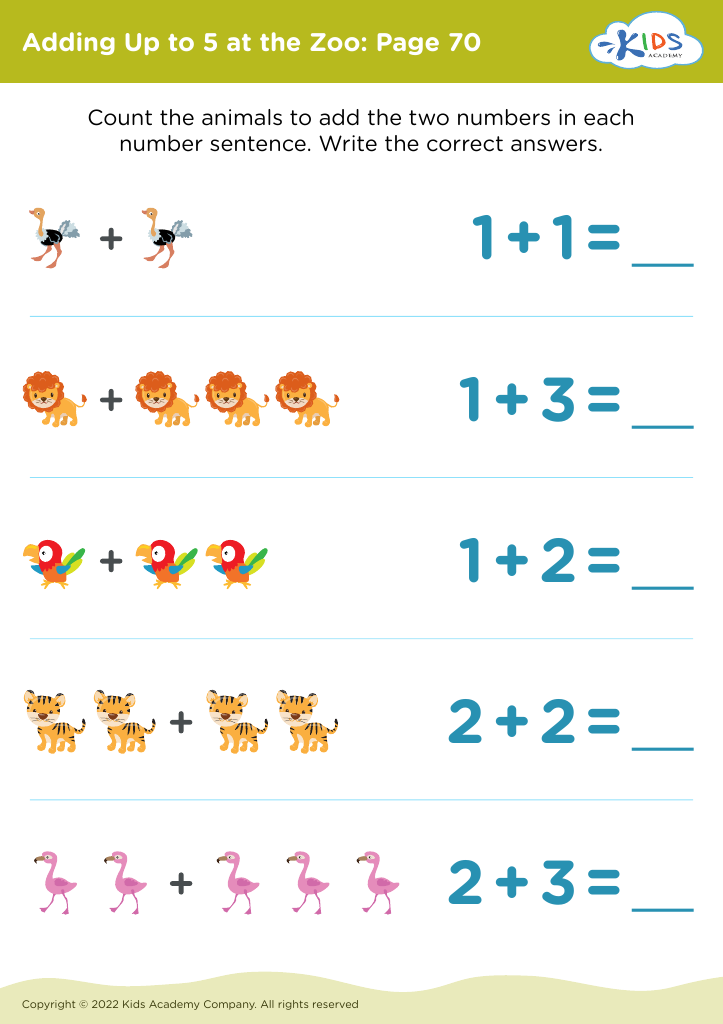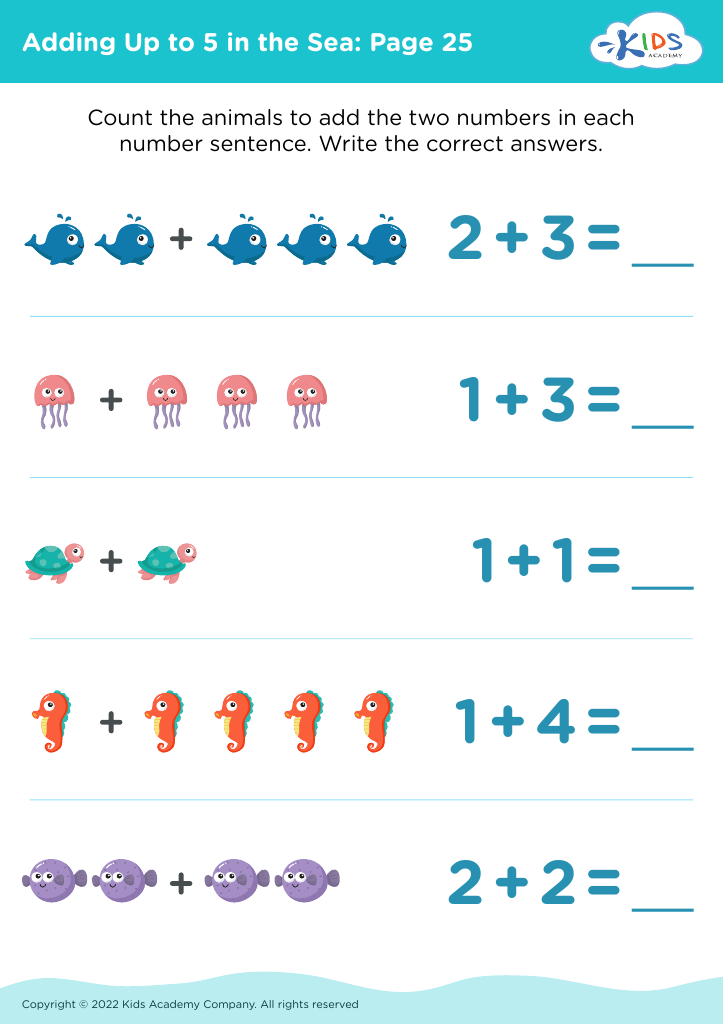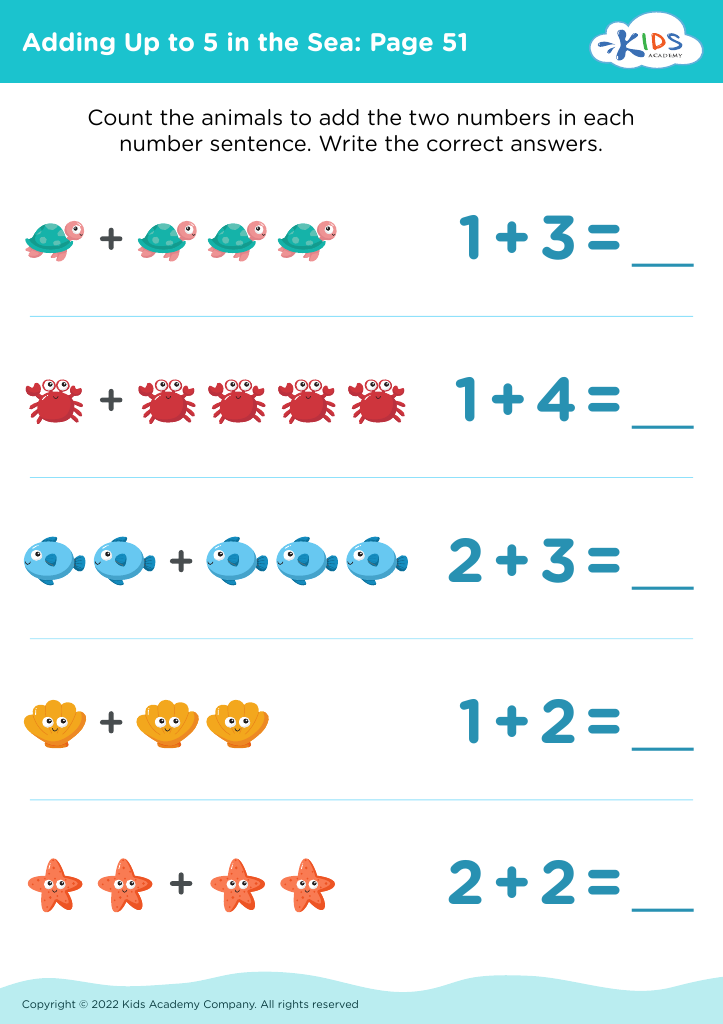Understanding number relationships Addition Worksheets for Ages 3-6
3 filtered results
-
From - To
Discover our "Understanding Number Relationships Addition Worksheets" designed specifically for children aged 3-6. These engaging worksheets help young learners grasp fundamental math concepts by exploring the relationships between numbers. Through fun exercises and vibrant illustrations, children will learn to identify and comprehend the basics of addition, fostering a solid foundation for future math skills. Our carefully crafted materials promote critical thinking and problem-solving while making learning enjoyable. Perfect for both home and classroom use, these worksheets encourage interactive learning experiences that support early childhood development. Start nurturing your child’s math confidence today with our easy-to-use addition worksheets!
Understanding number relationships and addition is crucial for children aged 3-6, as it lays the foundation for future mathematical skills and cognitive development. During these early years, children are naturally curious and eager to learn, making it the perfect time for parents and teachers to introduce core math concepts.
First, grasping number relationships helps children develop strong problem-solving abilities. When they learn that addition signifies combining quantities, they begin to see relationships between numbers, which enhances their reasoning skills. This understanding fosters a positive attitude toward math, encouraging exploration and experimentation with numbers.
Additionally, mastering addition builds children’s confidence. When children successfully grasp these concepts, they feel a sense of accomplishment, which motivates them to tackle more complex math challenges as they grow. Early exposure to number relationships also promotes critical thinking, enabling kids to focus on how numbers work together, which is essential for more advanced topics like subtraction, multiplication, and division in later grades.
Furthermore, grounding mathematical education in everyday activities—such as counting toys or sharing snacks—turns learning into a fun, interactive experience. Overall, fostering a solid foundation in number relationships and addition is vital for children’s current and future academic success.




















